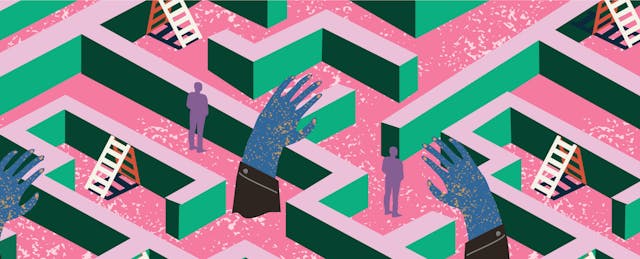For many of us, glancing at our social media feeds this year was a rather dispiriting exercise. Learning gaps deepened, the pandemic frustrated schools’ return to normal and teachers talked openly of burnout and exhaustion, when they weren’t announcing sudden retirement. It can seem as if the entire system of education is unraveling right when we need it most.
That’s not true, of course. Millions of students are still in school, learning as best they can from educators giving everything they’ve got. As the pandemic’s long shadow stretches across a third school year and beyond, schools have—quite literally—entered survival mode.
Once again, EdSurge asked educators and leaders from pre-K to higher ed to reflect on the year we’re leaving behind and the one about to dawn. And we asked them not to shy away from harsh realities as they consider what they’re letting go of, what they’re thinking about differently and how they’re approaching the most urgent challenges.
As ever, our educators did not disappoint, creating a complex tapestry threaded with honesty. They write about guilt, gratitude, making space and dreaming of new possibilities. They dole out remedies for supporting one another and practicing self-care. And they share what they have learned about finding peace amid the chaos.
“The pandemic has allowed me to be still and know that my role is situational at times. Sometimes I am the conductor and the composer. Other times I am just an alto singing in the choir, and I am OK with that,” writes Deitra Colquitt, a school principal and EdSurge fellow, in an essay about harmony. “I no longer attach value to doing or controlling it all. I am learning to embrace my role in the moment and let the sweet melody of peace ring out.”
—Stephen Noonoo, K-12 Editor


